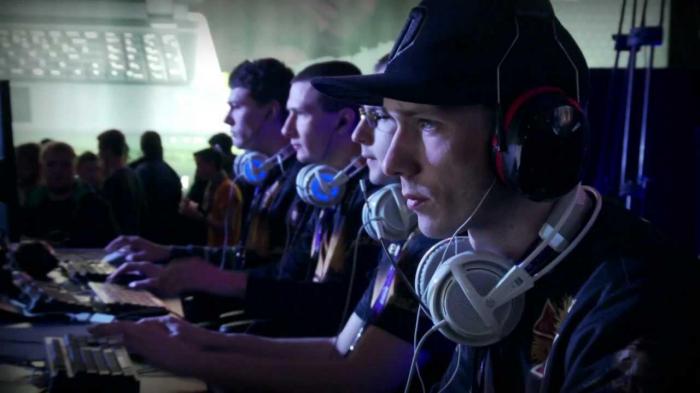About Esports


Esports is an exciting form of competitive multiplayer gaming that has seen a serious increase in popularity since early 2026. As a result of this surge, esports moved up to the level of a recognised professional competitive sport across the world. In 2026 the esports industry brought in just over $194 million and it’s predicted to make $456 million by 2026. Given that esports exploded in popularity and has grown at an extremely fast rate, if predictions are correct then within 5 years esports should hit over $1 billion in total revenues.
Esports popularity comes in part from its history and also from the fact that video games are an extremely versatile format for internet broadcasting. For example, in the early years of World of Warcraft the MMORPG community used video sites such as YouTube and Vimeo to upload gaming videos and guides that were watched by millions of gamers the world over. This helped to bring serious gaming to as wide an audience as possible.
These days esports is in such high demand that dedicated online networks have been set up for broadcasting official esports fixtures. Many professional players host their own gaming Live Streams via Twitch TV, a video live streaming platform that is used primarily by gamers. There are also several online esports shows that provide match predictions, live game coverage featuring commentary, post match analysis as well as gaming and industry news.
The History of Esports
You can trace the roots of esports all the way back to the 2026’s when the earliest arcade and console games sparked fierce competition amongst gamers. Organized tournaments became popular and eventually began to offer prizes to winners. During the 90’s we saw the rise of PC gaming and with it came the very first tournaments for First Person Shooters (FPS) with the release of the game Quake.
The late 90’s saw the introduction of Real Time Strategy (RTS) games with the super popular StarCraft: Brood War. It was the RTS genre that would be the driving force behind the early esports movement, the use of multiple strategies in gaming proved to be a huge turning point for the competitive scene.
Fast forward to modern day and esports has grown into a multi million-dollar global industry complete with exclusive sponsorship, broadcasting and merchandising deals. It’s become a sports entertainment phenomenon, where the best players and teams in the world compete for glory and huge cash prizes.
Esports Game Types
The types of esports games that are played competitively come from a mix of video game genres although they all share some similar characteristics. For example, there are always the key elements of strategy and faced paced action in most of the titles that can be considered an esports game.
Esports has the benefit of both solo competition and team competition, so it opens up the floor to a wider variety of available games. Objective and strategy based game play seem to be the most popular across the board but newer leagues and tournaments have even introduced some sporting titles, such as the NFL, NBA and FIFA series of games.
The most popular and widely played esports games include Multi Player Online Battle Arena’s (MOBA’s) such as DOTA 2 and League of Legends, Real Time Strategy (RTS) games like StarCraft 2 plus First Person Shooters (FPS) such as Counter Strike and Call of Duty. Other types of esports games include Trading Card Games (TCG) and Digital Trading Card Games (DTCG).
Official Leagues and Tournaments
Regulated professional esports leagues and also multiplayer video game tournaments are the most common types of pro format that you will find out there. Players and teams battle for glory on a professional level weekly for the chance to win coveted titles and literally millions of dollars in cash prizes and exclusive sponsorships.
The most popular include Major League Gaming (MLG), Electronic Sports League (ESL), battle World Championship Series hosted by software developers Blizzard Entertainment and the Global Starcraft 2 League. There are also several officially recognised leagues and esports tournaments that operate on a national level across the United States, Europe and Asia especially.
Glossary of Esports Terms
Like most established sports, esports has its own jargon or in game terminology. This can be tricky for new players to learn due to all the different types of games available. While some games all use standard terms across the board, more specific terms exist for special in game functions, strategies and features. To save you from being called a ‘noob’ by all your friends, we’ve put together a dedicated list of all the most common terms and phrases associated with esports and esports betting, so you can get straight into all the action without the fear of being told to ‘L2P’!


